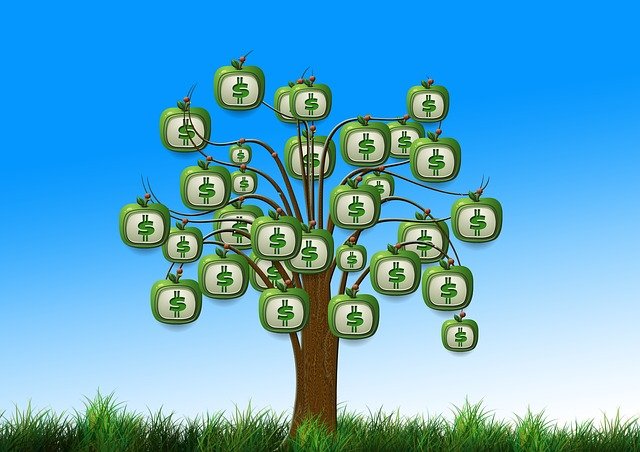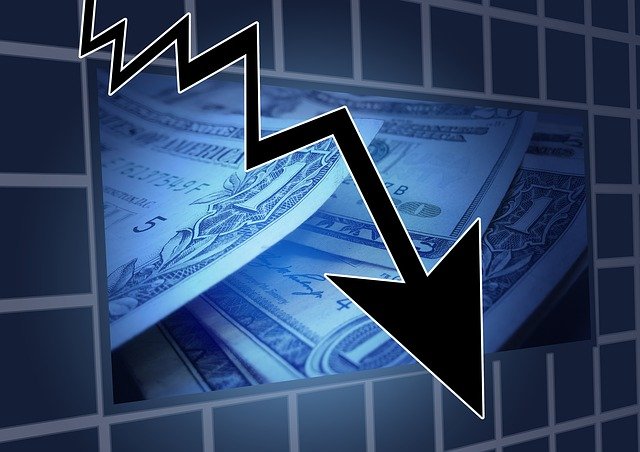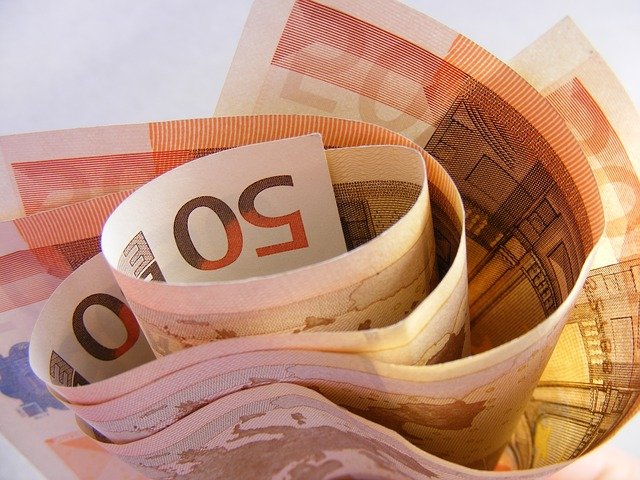Evolving Perspective on the Economic Impact of COVID-19
As the health concerns about the Coronavirus outbreak spread, the economic impact of shutdowns and stay-at-home orders is a common discussion among people evaluating the economic impact of COVID-19. Many quickly adjusted to remote-working and the rest of the family being home. But not everyone was lucky enough to keep their job. Unfortunately, many industries experienced eventual wage and hourly cuts because businesses were closed or operating at limited capacities, making it nearly impossible to pay employees and make a profit to stay open. While bars, restaurants, and gyms suffered despite economic impact measures, many lost the ability to pay bills. Not only small business owners were affected. At some point, almost everyone experienced a financial challenge related to Coronavirus. Now, as more stores and businesses reopen, and vaccination numbers are increasing, people are finding new jobs and opportunities. And for some, bankruptcy has been a welcomed tool to help get a fresh financial start.
Timeout Chicago: 65 Chicago Restaurants and Bars that Permanently Closed
Bankruptcy can be a solution for individuals and their families who were hurt by the economic impacts of COVID-19, even though they did nothing wrong. There are many situations where bad things happen to good people and a series of events cripple their income and finances. Even though many people found new and better jobs, by the time they had more income they were seriously behind financially. Being months behind on payments on credit cards, car loans, and mortgages, too many people think there is no way out. But then when learning about their rights and options in the bankruptcy laws, anyone financially hurt by the Coronavirus can get a fresh financial start and stop all the collection activity.
Wondering whether bankruptcy is worth it and whether it would be the best way to get out from under financial problems? Read TESTIMONIALS from happy bankruptcy clients!
Call Chicago Bankruptcy Attorney Joseph Wrobel for a free consultation (312) 781-0996.

Stay at Home Orders Interrupted Working and Doing Business
Being ordered to stay at home, many workers, both “essential” and “nonessential” immediately experienced a difference in their take-home pay and ability to pay their bills. When someone knows their next paycheck is going to be smaller or not there, the result is a financial emergency. Even if there are savings from which to draw, many of us in financial troubles must decide what to pay and when. Depending on where someone lives, the likelihood of being able to go back to work was unknown. Facing uncertainty, too many of our neighbors had no idea whether to look for a new job or hold on, hoping their current employment would return.
Bankruptcy solutions such as the Automatic Stay offered immediate help to people who were unable to continue without cash flow and did not have available funds to pay bills. Yes, a stimulus package would eventually be approved, but in the meantime, some people were already close to home foreclosure or vehicle repossession. A Chapter 13 bankruptcy would automatically stop bill collectors and would help the petitioner take three to five years to get back on track.

Wage and Hourly Cuts Hurt Middle-Class Families, Many Long-Term
As essential and non-essential workers were able to get back to productivity and getting paid, some fell behind during the time they experienced wage and hourly cuts in pay. Wage and hourly workers in food service, hospitality, and entertainment were seriously affected by COVID shutdowns. Consider the number of contracted wage earners who do not have access to traditional unemployment money, when the money runs out, it is gone. Even where eventual Coronavirus relief monies became available, people had to make sacrifices and fall into money trouble.
A Chapter 7 bankruptcy is an effective solution to eliminate a mountain of debts someone will never be able to pay. If wage and hour cuts made it impossible to keep paying the car, loan, and credit card payments, a full discharge gives people new hope. After accounts become delinquent and the interest charges and fines are multiplied, the debt mountain can be treacherous. Why not use bankruptcy to knock down the mountain and build some savings again?
Job Loss and Furloughs Affected Communities Everywhere
Small business owners rely on the money spent by fellow community members. When friends and families suffer job loss and furloughs, they are not able to spend as much of their income with small businesses in the community. Consider the local favorite restaurant that had to close and all their employees who used to shop next door at another local business. The domino effect of job loss and furloughed employees affects entire communities. All over the country, from big cities to small towns and suburban areas in between, the job losses and furloughs affected communities everywhere.
A local business owner might not be a sole proprietor in business and does not have a corporation to take advantage of the bankruptcy code for businesses. In that case, individual bankruptcies, such as Chapter 7 and Chapter 13 can help the local business owner address personal financial obligations as well as those in the business, to keep the business open during difficult times. In this scenario, the Chapter 13 debt reorganization bankruptcy filing has significant advantages, including not needing to qualify for a full discharge under Chapter 7.

Lost Ability to Pay Bills Put Many Months and Years Behind
Falling behind on bills is a common problem with people who experience a lost ability to pay bills during the Coronavirus Pandemic. Especially on a fixed budget, falling one month behind on a car or home mortgage payment can be an economic disaster. Even though there were some forms of mortgage and rent abatement and relief during the pandemic, but for many people, that help does not go far enough. Even though there were moratoriums on foreclosures and evictions, the money needs to be paid eventually. As many who have fallen behind in life can attest, it can take years to get back on track after being financially impaired due to something like the economic impact of COVID-19.
People who file for bankruptcy protection might also consider working with debt relief companies that act like bankruptcy trustees, accepting monthly payments to pay off debts on a long-term catch-up schedule. It can take a long time to complete one of these plans. Meanwhile, a bankruptcy offers additional protections such as the automatic stay provision to stop creditors, and bankruptcy reorganizations can involve only repaying a portion of the full amount owed.
Finding New Jobs and Opportunities Gives People Hope
The COVID-19 shutdowns and interruptions to businesses are different from place to place, but one thing is common to all; people found new ways to do business. Whether it be a restaurant offering curbside pickup to a law firm learning how to adapt to functioning with Zoom conferencing alone, almost all of us had to adapt to a new way of doing things. Whenever an alternative opportunity arises, people can learn to take advantage of different conditions.
People need hope and opportunities when living life and earning money becomes a challenge. Some people face challenges head-on and during Coronavirus they took food-delivery jobs and did whatever it takes to make money and keep the bills paid. And even if that person eventually needs bankruptcy help, they know they have the guts and work ethic to survive difficult times.

Using Bankruptcy as a COVID-19 Start-Over Tool, Get a Fresh Start
If the economic impact of COVID-19 created a mountain of debt that cannot be overcome, bankruptcy can be a good option for anyone who needs a fresh start. And even if a new job is on the horizon, people who survive financial emergencies tend to be more cautious to not get caught without savings. People who experience money troubles due to something out of their control are also more likely to learn how to spend within their means and budget their expenses so they can save more money. For some, this means driving a used vehicle instead of getting a new vehicle lease every two or three years.
Financial habits are easy to make and easy to break. After the shock of a financial emergency like Coronavirus shutdowns and job loss, many can get used to living differently. And for people who call living differently, living within their means, there is a benefit from overcoming something like the economic impact of COVID-19.
Get a Free Joseph Wrobel Bankruptcy Evaluation and Counsel (312) 781-0996
It does not matter whatever happened in the past 12 months or 12 years, when it is time to file for bankruptcy, it is time for a fresh financial start. People have all kinds of questions about bankruptcy such as how long it will take, how credit will be affected, and what the future is like after bankruptcy. At Joseph Wrobel, Ltd., Attorney Joe Wrobel, and his team answer all the questions about bankruptcy and help guide clients through the process of getting amazing debt relief after suffering the awful economic impacts of COVID-19.

 Subscribe to CB on YouTube!
Subscribe to CB on YouTube!